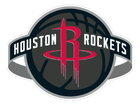In 1996, then-NBA Commissioner David Stern suspended Abdul-Rauf, who received death threats. The home in Mississippi that he was building for his family was burned down by the Ku Klux Klan. “I wasn’t surprised that that was the reaction,” he said. “Why? Because history has shown, in particular, when young or African American athletes, entertainers, whoever, step outside of the athletic box and speak out on something else, ‘You’re condemned.’”
Brogdon said his grandfather’s passion for civil rights was actually sparked by the Ku Klux Klan during his childhood. “His grandfather was involved heavily with the church as well, and I guess the wrong people in the town didn’t like it,” Brogdon said. “So, the KKK came and burned crosses in their backyard. So, I remember him telling the story of how they woke up and the front yard was on fire because the KKK had just come. And I know that’s one of the stories that, as a child, really lit a fire for him… “My family, my grandparents have always been outspoken, my grandmother as well. She’s still here, and she tells stories of white folks in the town when they were growing up, and my mom and my sisters, were calling the house and threatening to kill them while my grandfather was away traveling.”

James found parallels between the pro-Trump rioters and the KKK, which is considered a terrorist hate group. "The KKK and the rags over their faces, now they’re just hiding under certain other costumes," James said. "They’re going under other costumes that you saw yesterday in the Capitol. You can’t sit here and say that those aren’t terrorists. We keep saying they aren't protestors. They’re not protestors. What are they protesting? Knocking down walls, knocking down the gates of the nation’s Capitol?"
As the current generation of NBA players have spent the past few months fighting for social justice and against racial inequality, Boston Celtics legend Bill Russell reminded people Monday that this isn't the first time basketball players have engaged in those battles. "Black kids today don't grow up worried the Klan will kill them in the middle of the night -- they worry the police will," Russell, one of the greatest players in the history of the sport who has spent his life fighting for civil rights, wrote in an essay for The Players' Tribune. "The effects of racial terror perpetrated over hundreds of years don't disappear simply because America wills them to. Yet all is not hopeless.”
Advertisement
Bill Russell: In the 1960s, I tried to move to Wilmington, MA, but nobody would sell me a house. So, I moved my family to Reading, a predominantly white town 16 miles north of Boston. Bigots broke into the house, spray-painted “Nigga” on the walls, shit in our bed. Police cars followed me often. I looked into buying a different house in a different neighborhood, but people in that neighborhood started a petition to persuade the seller not to sell to me. Around this same time Medgar Evars was murdered by the KKK. His brother, Charlie, asked me if I would do a series of integrated basketball clinics for children, which I did. I marched in Washington, supported Ali. After that, the death threats started coming. I said then that I wasn’t scared of the kind of men who come in the dark of night. The fact is, I’ve never found fear to be useful.
Barnes: It’s frustrating. Me being someone who grew up bi-racial, being half Italian and black, I faced racism at a very early age. It boiled over in high school, to the point where someone was calling my sister a n-----. We happened to fight right after that, and a day-and-a-half later, the KKK vandalized my whole school. They burned down a bathroom and it made national news. I learned at an early age, even though I was very proud to be mixed, I was looked at as a black man. I’ve had enough racist events in my life to understand that racism is real and alive, so the stuff with Sterling didn’t surprise me. He was just dumb enough to get caught, but he wasn’t the only one thinking that way at the time or still thinking that way now.
Growing up in Radford, Virginia, Sonya Curry once saw a Ku Klux Klansman light a cross on fire. She heard stories about how her mother was part of the desegregation of a high school and regularly got into fights over being called the N-word. She learned early on in her life that “racism is real.” But through sports, Curry found a way to overcome the racism she experienced in small-town Virginia. And while her NBA sons, Stephen and Seth Curry, were blessed to be raised by successful, educated and wealthy parents in Charlotte, she made sure they knew about her upbringing.

Austin Rivers: “My parents had to go through much worse dating in the era they did — a white woman dating a black guy when my mom was in college. We had people in the KKK come burn our house down in San Antonio. I don’t like to talk about this. I was 4 years old. I remember what the house looked like. I remember my mom … There’s been a lot of things happen to my family, a lot of things happen to my mom and dad, specifically. It means a lot more than people think it means. I don’t just have Martin Luther King on my leg for no reason.”
At least two former University of Kentucky basketball stars issued an ultimatum demanding their Hall of Fame plaques be removed from Louisville's Freedom Hall after KKK and Nazi memorabilia was sold at a gun show inside that arena. The Kentucky Expo Center issued a statement acknowledging the sale of "items representing racist ideology" and called for a November 15 emergency meeting to address the continued availability of such items. Authentic Nazi Christmas ornaments, Ku Klux Klan robes, Gestapo uniforms and swastika shirts were sold during this past weekend's National Gun Day expo event. Hall of Fame Kentucky Wildcat players Rex Chapman and Mike Pratt took to Twitter Tuesday demanding their names be removed from plaques displayed at the same venue.
Advertisement

David Fizdale spoke out, and continues to speak out, against the presence of two statues in the city -- of former Confederate president Jefferson Davis and of Nathan Bedford Forrest, who amassed a personal fortune in the slave trade before the Civil War before becoming a general in the Confederate army, an early scion of post-Civil War Memphis and one of the first members of the Ku Klux Klan, rising to a position of authority in that odious organization.
"So the reason why you didn't go (to UNC), or the major reason, is the KKK had a rally going on at the time?" Patrick asked. "Big rally man. I was like... They stuck me in that Carolina Inn. And at night down in North Carolina it gets pitch black and I hear all the crickets and I'm jumping, I'm like 'what the heck?' I said, 'Nah, I'm going home.'"

Truth be told, the game's stars have been trying to do the same thing for many decades. Yet, while contemporary players essentially choose between several good options, the issues facing the best players in the '70s were a little more immediate and pressing. Like, say, worrying about the Ku Klux Klan. That's not an exaggeration. As Earl Monroe explains in his new book "Earl the Pearl: My Story," the Indiana Pacers, then an ABA franchise, had expressed interest in acquiring him from the NBA's Washington Bullets in October 1971. Looking for a new team as the Bullets waffled on trading him, Monroe was intrigued by the offer and visited Indianapolis to get a sense of the franchise and the environment. That's when he learned it might not be a great fit.